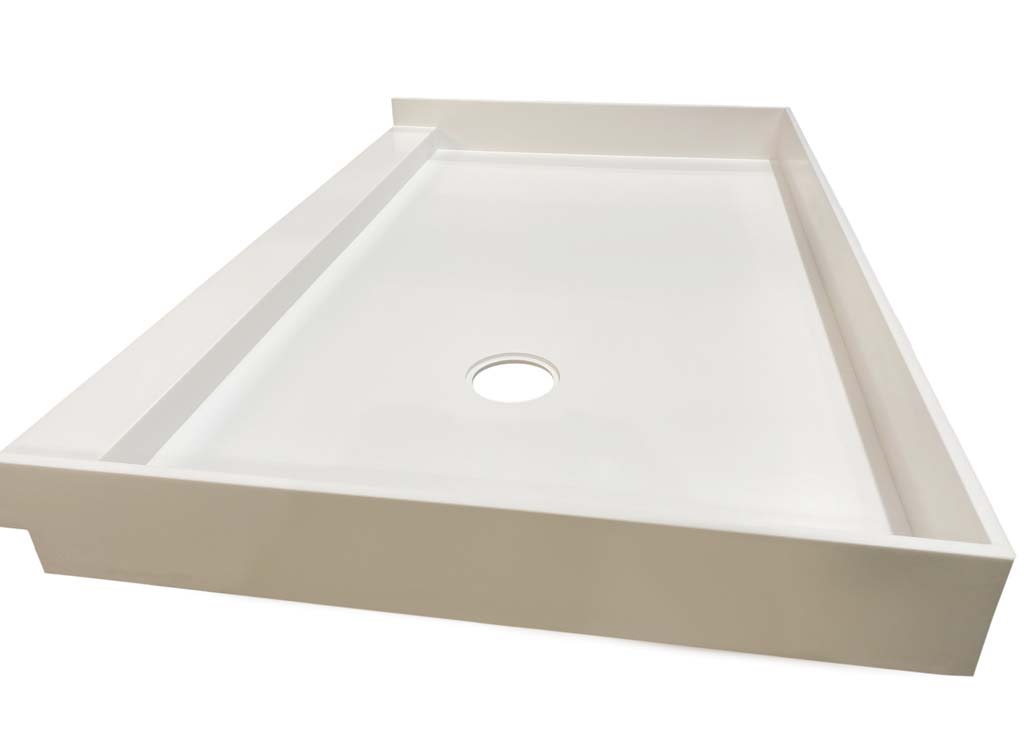Acrylic Solid Surface Shower Bases: The Perfect Choice for Your Renovation
15 August 2024
Acrylic solid surface shower bases from TKIC offer durability, style, and easy maintenance, making them the ideal choice for your next bathroom renovation.
Acrylic solid surface shower bases are becoming increasingly popular in modern bathroom renovations. Their sleek design, durability, and ease of maintenance make them a top choice for homeowners and designers alike. Let’s explore why acrylic solid surface shower bases are an excellent choice for your bathroom renovation and compare them with other common materials.
Comparing Acrylic Solid Surface Shower Bases with Other Materials
When planning a bathroom renovation, choosing the right shower base material is crucial. Let’s compare acrylic solid surface shower bases with other common options to understand why they’re becoming increasingly popular.
• Acrylic vs. Ceramic – Ceramic tiles have long been a staple in bathroom design, but acrylic solid surface bases offer several advantages. Unlike ceramic, which can be cold underfoot and prone to cracking, acrylic surfaces are warm to the touch and highly resistant to impact. Acrylic bases provide a seamless look, avoiding grout lines that can harbour mould. Unlike ceramic, acrylic can mimic stone and other materials, offering versatile design and practicality.
• Acrylic vs. Fibreglass – Fibreglass shower bases are known for their lightweight nature and affordability. However, acrylic solid surface bases outperform fibreglass in several key areas. Acrylic is more durable and less likely to crack or chip over time, maintaining its colour and finish better than fibreglass, which can yellow or fade. While both are easy to install, acrylic offers superior longevity and aesthetic appeal.
• Acrylic vs. Natural Stone – Natural stone shower bases, such as marble or granite, exude luxury and unique beauty. However, they come with significant drawbacks that acrylic solid surfaces address. Stone requires regular sealing to prevent water damage and staining and often needs extra structural support due to its weight. Acrylic solid surfaces are non-porous, stain-resistant, lighter, and mimic natural stone without maintenance and installation challenges, offering a practical, high-end look.
Factors to Consider When Selecting a Shower Base
Choosing the right shower base involves more than just material selection. Here are three crucial factors to keep in mind:
• Durability and Longevity – Acrylic solid surface shower bases are known for their durability and longevity. They are resistant to chipping, cracking, and staining, ensuring that your shower base will look great for years to come. This makes them an excellent investment for any bathroom renovation.
• Aesthetic Appeal – The aesthetic appeal of your shower base is an important factor to consider. Acrylic solid surfaces offer a sleek, modern look that can complement a variety of bathroom styles. They are available in a wide range of colours and finishes, allowing you to customise your shower to match your taste and the overall design of your bathroom.
• Ease of Maintenance – Maintenance is another important consideration. Acrylic solid surface shower bases are non-porous, which makes them resistant to mould, mildew, and stains. This means they are easy to clean and require minimal upkeep, saving you time and effort in the long run.
If you’re considering upgrading your shower, explore the possibilities of acrylic solid surface. Our team of expert solid surface benchtop fabricators at TKIC can create a custom shower base tailored to your specific needs. Visit and like our Facebook page for promos and updates.
Optimized by: Netwizard SEO



